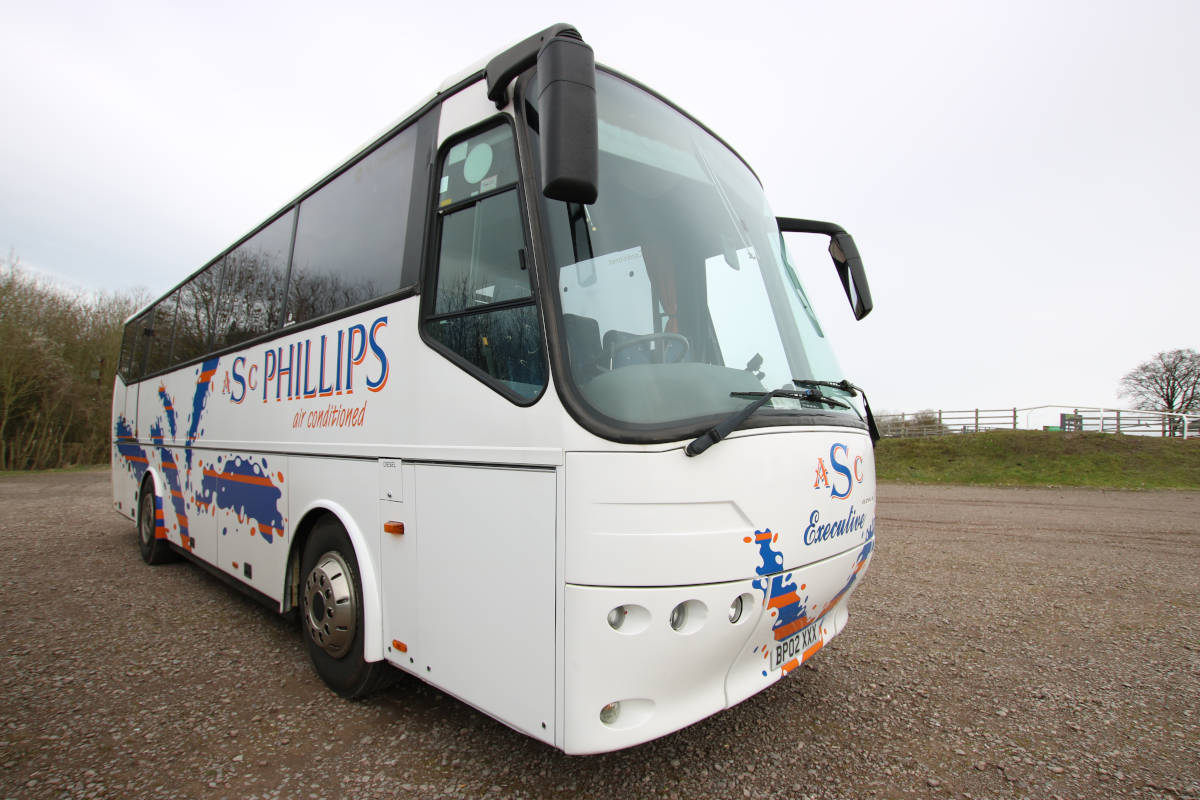ASC Phillips for Lydbrook,, Forest of Dean, Gloucestershire
For reliable, comfortable professionally organised group travel services in Monmouthshire and surrounding areas, call ASC Phillips. Whatever size of group you need to move, they can be accommodated in modern, well equipped vehicles, driven by experienced, DBS checked drivers. The vehicles avaible are:
- Minibuses, 8-16 seat
- 36 Seat coach with luggage space
- 53 Seat executive coach with luggage space
- 70 Seat coach with luggage space

--Request Information-- --More Images Like This--Photo from Featured Project near Lydbrook
For medium sized parties, our 37 seat coach is perfect.
When you have too many people for a minibus. yet the party size is small enough to feel lost and echoing on the bigger coaches, oiur 37 seat coach may be the perfect solution.
For medium sized parties, our 37 seat coach is perfect.
When you have too many people for a minibus. yet the party size is small enough to feel lost and echoing on the bigger coaches, oiur 37 seat coach may be the perfect solution.
With comfortable seats, all fitted with safety belts, your party can travel in style and arrive at your destination feeling fresh. There is plenty of legroom too, for the taller passengers, while those who are not so tall may appreciate the adjustabl footrets.
There is a small galley kitchen where refreshing cuppas can be made en route, and a toilet for the comfort and congenience of all.
Lydbrook is a large village situated on the western edge of the Forest of Dean and adjacent to the Wye Valley. Many of the village houses are high on the valley hillsides. The Lydbrook valley was once the site of a thriving tinplate works, opened in 1871 and closed in 1925. The village also housed the large cable works factory built in 1912 by H. W. Smith & Co. The works supplied a vast quantity of field telephone cable during the First World War. The old railway, built in 1872 ran high along the hillside, and then crossed the valley on a huge viaduct on 90ft high stone piers. The viaduct was finally demolished in 1969. Without the heavy industry, the village is now a tranquil backwater. Lydbrook became established thanks to its deep valley, running down to the Wye from the central Forest. It offered a source of power (running water), close proximity to materials such as wood, stone and iron ore and also good communications and transport via the Wye. A mill existed at Lydbrook ViaductLydbrook as early as 1282 by the late 15th century, there were three forges, a lime kiln a tinplate works and a wire-works. It became the principle coal port on the Wye from which Forest coal was shipped to Ross and Hereford. Despite the fact that for most of its history Lydbrook has been a hive of industrial activity, surprisingly little of this remains to be seen. The Forge Hammer Inn (currently closed) recalls the village's past along with a row of former dockworkers cottages at the foot of the valley near the river. There is a group of lime kilns in the lane above the Royal Spring Inn and the King's Howarth Furnace, albeit in greatly changed form also remains. Most notable however are the abutments of the Severn & Wye Railway Viaduct, which was built in 1872 to carry a branch railway line from Cinderford, a major feat of 19th century engineering

